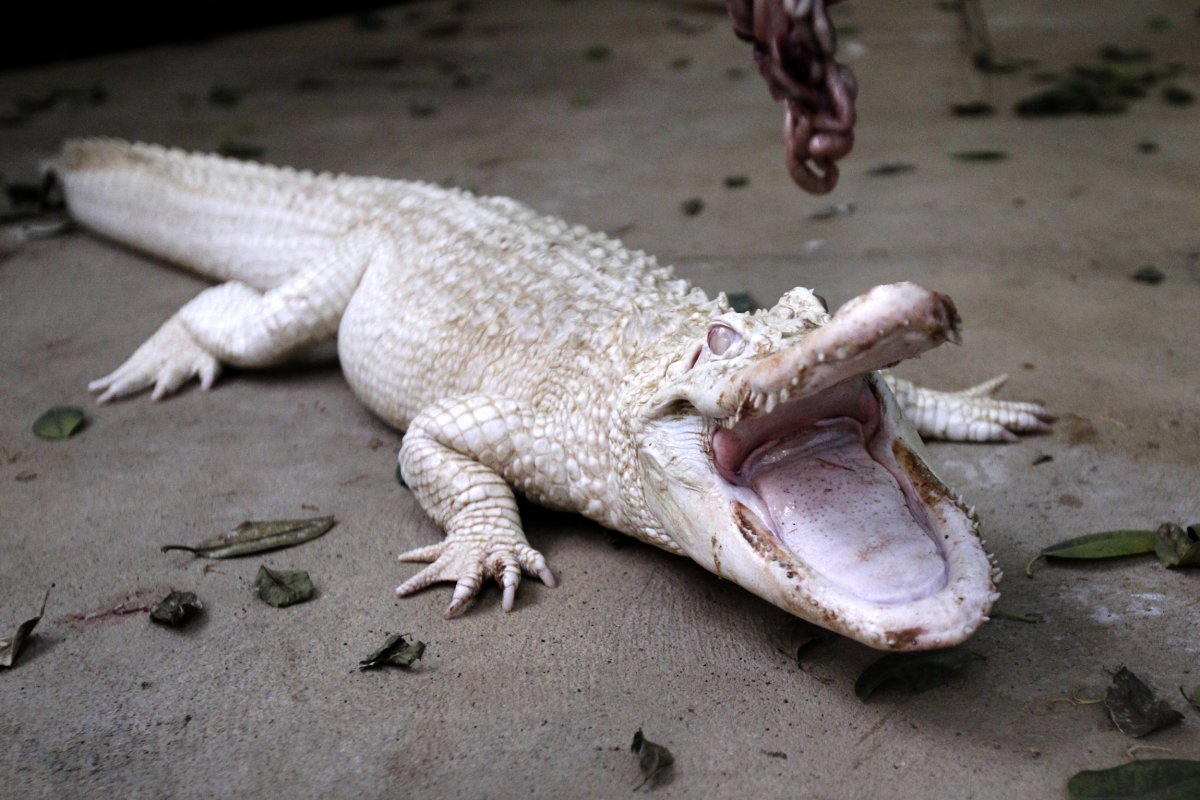A white alligator underwent an operation after dozens of metal coins were discovered in its stomach, amounting to about $7.
Thibodaux, a 36-year-old American alligator, is one of 10 alligators at Omaha's Henry Doorly Zoo and Aquarium in Nebraska. Thibodaux is special, however, as he has leucism, giving him his characteristic white appearance.
Thibodaux was discovered to have 70 U.S. coins hidden inside his stomach during a routine health check of all the alligators at the zoo, thought to have been thrown into his enclosure by zoo attendees.
As part of their routine care, our 10 American alligators participated in examinations to ensure they are healthy. These exams consist of blood collection and radiographs, which are all a result of...
"These exams consist of blood collection and radiographs, which are all a result of decades of establishing trust with these animals through proactive training efforts that allow the animals to voluntarily participate in their own veterinary care," Omaha's Henry Doorly Zoo and Aquarium said in a Facebook post.
Thibodaux had an operation on February 15 to remove the coins and had his blood checked for any toxic chemicals that the coins may have contained.
"With the help of his training, Thibodaux was anesthetized and intubated to allow us to safely manage him during the procedure," said Christina Ploog, an associate veterinarian at Omaha's Henry Doorly Zoo and Aquarium, said in the post.
"A plastic pipe was placed to protect his mouth and safely pass the tools used to access the coins, such as a camera that helped us guide the retrieval of these objects."
Thibodaux is now happy and healthy and has been returned to his habitat.
The zoo has warned visitors to not throw coins into any water bodies, as animals like the alligators may swallow them, risking intestinal blockages. Many of the coins were likely eaten after guests threw them towards the alligators.
"Kind of the assumption is that the coins are being tossed in the mouth of the alligator because they're so thin, for them to be able to get it off the ground would be very difficult," Ploog told Omaha news station KETV.

His unique coloring is due to a genetic condition called leucism, which is similar to albinism in that it causes abnormalities in pigmentation due to genetic mutations that affect the production of melanin. However, leucism results in partial pigmentation loss with normal eye coloration, whereas albinism is characterized by complete or near-complete pigmentation loss affecting the entire body, including the eyes.
"Though a procedure like the one done on Thibodaux is not always common, it's a great example of what our animal care and animal health teams do every day across our campus to provide excellent care to our animals," zoo veterinarian and director of animal health Taylor Yaw said in the Facebook post.
Do you have a tip on a science story that Newsweek should be covering? Do you have a question about alligators? Let us know via science@newsweek.com.
Uncommon Knowledge
Newsweek is committed to challenging conventional wisdom and finding connections in the search for common ground.
Newsweek is committed to challenging conventional wisdom and finding connections in the search for common ground.
About the writer
Jess Thomson is a Newsweek Science Reporter based in London UK. Her focus is reporting on science, technology and healthcare. ... Read more
To read how Newsweek uses AI as a newsroom tool, Click here.





